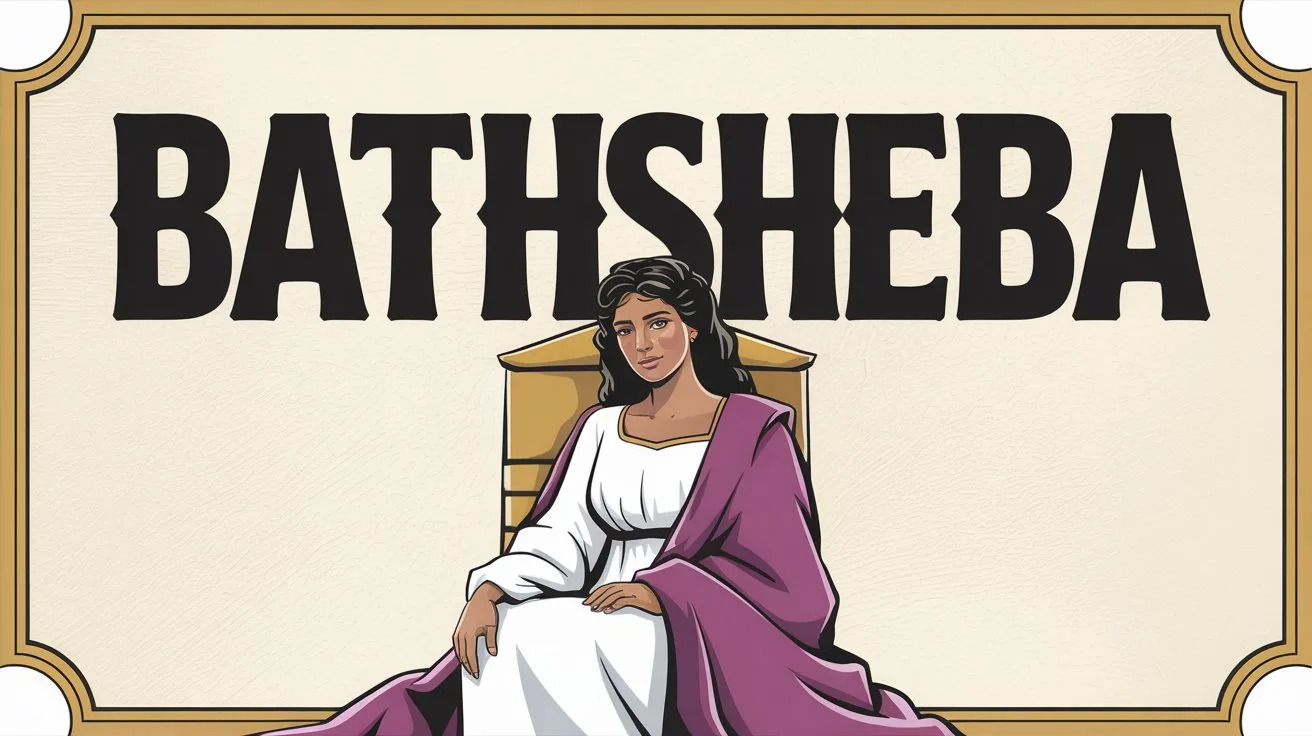Bathsheba is often remembered for scandal, but Scripture gives us a broader and richer portrait of her life. She was a daughter, a wife, a mother, and eventually the queen mother of Solomon. Her name appears in critical moments in the lineage of Christ, and though her life was marked by tragedy, it was ultimately redeemed by God.
Her Lineage and Identity
The first time Bathsheba is introduced is in 2 Samuel 11:3, where she is described as “Bathsheba, the daughter of Eliam, the wife of Uriah the Hittite.” Her name, בַּת־שֶׁבַע (Bath-Sheva), means “daughter of an oath” or “daughter of seven”—both carry covenantal overtones. Her father, Eliam, is listed in 2 Samuel 23:34 as one of David’s mighty men, the son of Ahithophel the Gilonite, who was David’s counselor (2 Samuel 15:12). This would make Ahithophel Bathsheba’s grandfather.
This means Bathsheba was born into a prominent and noble family, surrounded by warriors and counselors of the king. She was not a common woman; she was already part of David’s inner circles.
The Sin with David
In 2 Samuel 11, we read the account of David’s sin. David sees her bathing and inquires after her. Despite knowing she is married, he sends for her and lies with her. The text says,
“she was cleansed from her impurity” (2 Samuel 11:4),
which is a reference to ritual cleansing after menstruation (cf. Leviticus 15:19-24). This is an important detail; it emphasizes that her conception was clearly due to David’s act, not from Uriah.
There is no indication in the text that Bathsheba had any power or choice in this. David was king. His authority was absolute. The Bible does not assign her guilt. The focus of divine judgment falls solely on David (2 Samuel 12:9–10). This is echoed when Nathan the prophet confronts David and says,
“You have killed Uriah the Hittite with the sword; you have taken his wife to be your wife” (2 Samuel 12:9).
The blame and guilt are David’s alone.
The Loss of Their First Child
The child born from that union becomes sick and dies as part of God’s judgment (2 Samuel 12:15–23). David fasts and pleads with the Lord for the child, but when the child dies, he accepts God’s will. Bathsheba is not mentioned by name during the child’s sickness, but afterward,
“David comforted Bathsheba his wife, and went in to her and lay with her. So she bore a son, and he called his name Solomon” (2 Samuel 12:24).
This next verse is powerful: “Now the Lord loved him” (2 Samuel 12:24). Despite the sin, the consequences, and the sorrow, God chose to show mercy and favor. Solomon, born of Bathsheba, becomes the next king.
Bathsheba as Queen Mother
In 1 Kings 1, as David nears death, Bathsheba plays a key political role. She reminds David of his oath to make Solomon king (1 Kings 1:17). With the help of Nathan the prophet, she ensures Solomon’s ascension over Adonijah. This reveals her wisdom, courage, and discernment.
In 1 Kings 2:13–25, Adonijah tries to manipulate her to request Abishag the Shunammite as his wife (an implicit move for power). Bathsheba speaks to Solomon on Adonijah’s behalf, showing her continued influence in the royal court, but Solomon discerns the true intention and has Adonijah executed.
The most honored moment is 1 Kings 2:19, where Solomon
“rose up to meet her and bowed down to her, and sat down on his throne and had a throne set for the king’s mother; so she sat at his right hand.”
This is a striking honor. Bathsheba is treated with royal dignity, not merely as David’s former wife, but as the queen mother.
The Lineage of the Messiah
In Matthew 1:6, Bathsheba is mentioned indirectly in the genealogy of Jesus:
“David the king begot Solomon by her who had been the wife of Uriah.”
This phrasing preserves the memory of Uriah and shows that Bathsheba is part of God’s redemptive plan. From her womb came the line that led to the Messiah.
My Final Thoughts
Bathsheba’s life was not just about failure; it is about redemption and the providence of God. She was born into a noble house, taken into tragedy, and raised into honor. She was not the seductress many assume, but a woman caught in a storm of power. She endured the death of a child, the weight of scandal, and the complexities of royal life. Yet in the end, she was the mother of Solomon, the matriarch of the Messianic line, and a woman honored by kings.
God does not erase the past, but He can redeem it for His glory. Bathsheba’s life reminds us that grace can rewrite anyone’s past. Amen.





 Get the book that teaches you how to evangelize and disarm doctrines from every single major cult group today.
Get the book that teaches you how to evangelize and disarm doctrines from every single major cult group today.